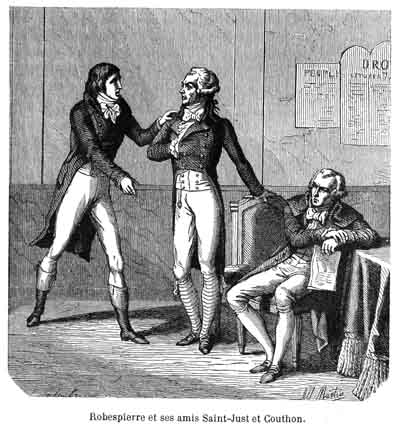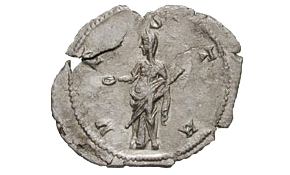|
Septemvir
In ancient Rome, a septemvir was one of seven men appointed to execute a commission. The term ''septemviri'' was used to refer to such a commission collectively. Seven-man commissions were appointed to serve both secular and religious purposes. One of the most significant religious groups in Rome was the ''septemviri Epulones'', a college of priests who prepared the feasts in honour of the gods. See also * Triumvirate * Decemviri The decemviri or decemvirs (Latin for "ten men") refer to official ten-man commissions established by the Roman Republic. The most important were those of the two decemvirates, formally the decemvirate with consular power for writing laws () w ... References Ancient Roman titles Ancient Roman religion {{Ancient-Rome-stub ... [...More Info...] [...Related Items...] OR: [Wikipedia] [Google] [Baidu] |
Collegium (ancient Rome)
A (: ) or college was any association in ancient Rome that acted as a legal entity. Such associations could be civil or religious. The word literally means "society", from ("colleague"). They functioned as social clubs or religious collectives whose members worked towards their shared interests. These shared interests encompassed a wide range of the various aspects of urban life; including political interests, cult practices, professions, trade, and civic services. The social connections fostered by ''collegia'' contributed to their influence on politics and the economy; acting as lobbying groups and representative groups for traders and merchants. Some ''collegia'' were linked to participating in political violence and social unrest, which resulted in the suppression of social associations by the Roman government. Following the passage of the '' lex Julia'' during the reign of Julius Caesar as consul and dictator of the Roman Republic (49–44 BC), and their reaffirmation d ... [...More Info...] [...Related Items...] OR: [Wikipedia] [Google] [Baidu] |
Triumvirate
A triumvirate () or a triarchy is a political institution ruled or dominated by three individuals, known as triumvirs (). The arrangement can be formal or informal. Though the three leaders in a triumvirate are notionally equal, the actual distribution of power may vary. The term can also be used to describe a state with three different military leaders who all claim to be the sole leader. Informally, the term "triumvirate" may be used for any association of three. Under the influence of the Soviet Union, the term troika (Russian: for "group of three") may be used for "triumvirate". Pre-modern triumvirates Biblical In the Bible, triumvirates occurred at some notable events in both the Hebrew Bible (Old Testament) and New Testament. In the Book of Exodus, Moses, his brother Aaron and their nephew or brother-in-law, Hur, acted this way during the Battle of Refidim against the Amalekites. Later in Exodus 24, when Moses was away on Mount Sinai, Aaron and Hur were left in ch ... [...More Info...] [...Related Items...] OR: [Wikipedia] [Google] [Baidu] |
Decemviri
The decemviri or decemvirs (Latin for "ten men") refer to official ten-man commissions established by the Roman Republic. The most important were those of the two decemvirates, formally the decemvirate with consular power for writing laws () who reformed and codified Roman law during the Conflict of the Orders between ancient Rome's patrician aristocracy and plebeian commoners. Other decemviri include the decemviri for adjudging litigation ('), the decemviri for making sacrifices ('), and the decemviri for the assignment and giving of arable lands ('). ''Decemviri consulari imperio legibus scribundis'' Background Gaius Terentilius Harsa, a plebeian tribune, wished to protect the plebeian population by curtailing the power of the Roman consuls. To do this, he proposed a law in 462 BC which provided for a five-man commission to define their power. The patricians were opposed to this curtailment and managed to postpone the debate on this law for eight years. In 454 BC ... [...More Info...] [...Related Items...] OR: [Wikipedia] [Google] [Baidu] |
Ancient Rome
In modern historiography, ancient Rome is the Roman people, Roman civilisation from the founding of Rome, founding of the Italian city of Rome in the 8th century BC to the Fall of the Western Roman Empire, collapse of the Western Roman Empire in the 5th century AD. It encompasses the Roman Kingdom (753–509 BC), the Roman Republic (50927 BC), and the Roman Empire (27 BC476 AD) until the fall of the western empire. Ancient Rome began as an Italic peoples, Italic settlement, traditionally dated to 753 BC, beside the River Tiber in the Italian peninsula. The settlement grew into the city and polity of Rome, and came to control its neighbours through a combination of treaties and military strength. It eventually controlled the Italian Peninsula, assimilating the Greece, Greek culture of southern Italy (Magna Graecia) and the Etruscans, Etruscan culture, and then became the dominant power in the Mediterranean region and parts of Europe. At its hei ... [...More Info...] [...Related Items...] OR: [Wikipedia] [Google] [Baidu] |
Epulones
The (Latin for "feasters"; sing. ''epulo'') was a religious organization of Ancient Rome. They arranged feasts and public banquets at festivals and games (''ludi''). They constituted one of the four great religious corporations (''quattuor amplissima collegia'') of ancient Roman priests. Establishment and influence The college was founded in 196 BC due to a law passed by Gaius Licinius Lucullus. The need for such a college arose as the increasingly elaborate festivals required experts to oversee their organization. They were tasked with attending and managing banquets known as ''epulum'' which were dedicated to the gods. One major epulum was the ''epulum jovis'' which was dedicated to Jupiter. Previously these banquets were managed by the '' pontiffs.'' There were four great religious corporations (''quattuor amplissima collegia'') of ancient Roman priests; the two most important were the College of Pontiffs and the college of augurs; the fourth was the '' quindecimviri sa ... [...More Info...] [...Related Items...] OR: [Wikipedia] [Google] [Baidu] |
Ancient Roman Titles
Ancient history is a time period from the beginning of writing and recorded human history through late antiquity. The span of recorded history is roughly 5,000 years, beginning with the development of Sumerian cuneiform script. Ancient history covers all continents inhabited by humans in the period 3000 BCAD 500, ending with the expansion of Islam in late antiquity. The three-age system periodises ancient history into the Stone Age, the Bronze Age, and the Iron Age, with recorded history generally considered to begin with the Bronze Age. The start and end of the three ages vary between world regions. In many regions the Bronze Age is generally considered to begin a few centuries prior to 3000 BC, while the end of the Iron Age varies from the early first millennium BC in some regions to the late first millennium AD in others. During the time period of ancient history, the world population was exponentially increasing due to the Neolithic Revolution, which was in full prog ... [...More Info...] [...Related Items...] OR: [Wikipedia] [Google] [Baidu] |



